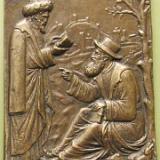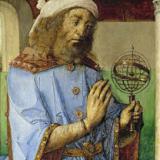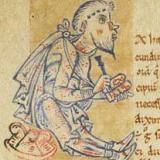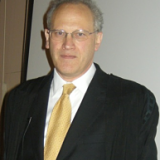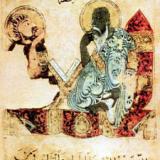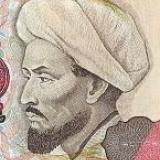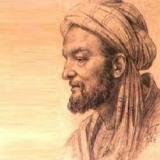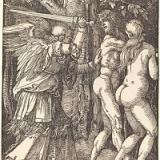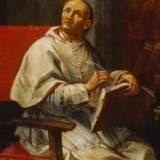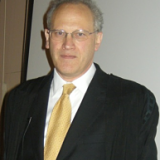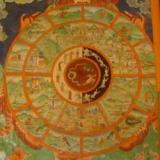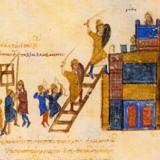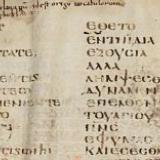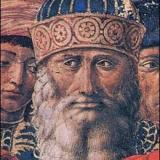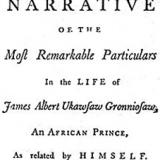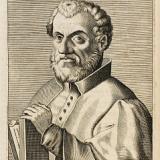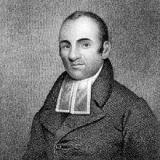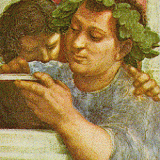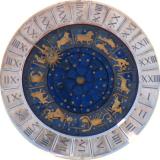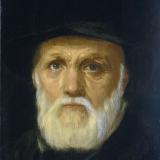Determinism and Fate
Posted on
Peter looks at the Stoic idea of god, a providential fire that pervades nature, and considers their idea of a deterministic and eternally recurring cosmos.
Posted on
Alexander of Aphrodisias writes the greatest ancient commentaries on Aristotle and tries to demolish the Stoic teaching on fate.
Posted on
Ptolemy uses philosophy in the service of studying the stars, while philosophers of all persuasions evaluate the widespread practice of astrology.
Posted on
Apuleius, Victorinus, Martianus Capella, Macrobius and Calcidius present and interpret Platonic teachings for readers of Latin.
Posted on
John Marenbon joins Peter to discuss Boethius' solution to the problem of divine foreknowledge.
Posted on
A group of mostly Christian philosophers transpose the practices of antique Aristotelian philosophy to 10th century Baghdad.
Posted on
Peter begins to look at the systematic rethinking of Hellenic philosophy offered by al-Fārābī, focusing on his logic and metaphysics.
Posted on
Al-Ash'arī puts his stamp on the future of Islamic theology by emphasizing God’s untrammeled power and freedom.
Posted on
Avicenna’s proof of the Necessary Existent is ingenious and influential; but does it amount to a proof of God’s existence?
Posted on
John Scotus Eriugena debates free will with his rival Gottschalk, arguing that God predestines the saved but not the damned.
Posted on
Peter Damian takes up a question with surprising philosophical implications: can God restore virginity to a woman who has lost it?
Posted on
John Marenbon returns to the podcast to discuss Abelard's views on necessity and freedom.
Posted on
The origins of the idea of karma, its moral significance in the Upanisads, and an alternative conception in the Bhagavad-Gita.
Posted on
Scotus, Ockham, and Bradwardine ask how we can be free if God knows and chooses the things we will do in the future.
Posted on
The larger meaning of history in the chronicles written by Michael Psellos, Michael Attaleiates, Anna Komnene, and Niketas Choniates.
Posted on
Is traditional African religion in some sense monotheist, despite the worship of many divinities?
Posted on
Thomas Aquinas finds avid readers among Byzantines at the twilight of empire, and is used by both sides of the Hesychast controversy.
Posted on
Was Gemistos Plethon, the last great thinker of the Byzantine tradition, a secret pagan or just a Christian with an unusual enthusiasm for Platonism?
Posted on
Eighteenth century black authors touch on philosophical themes in autobiographical narratives, poetry, and other literary genres.
Posted on
Bessarion and George Trapenzuntius, rival scholars from the Greek east who helped inspire the Italian Renaissance.
Posted on
Preacher and Revolutionary War soldier Lemuel Haynes argues that the principles of the American Revolution demand the abolition of slavery.
Posted on
The rediscovery of Epicurus, Lucretius, and Sextus Empiricus spreads challenging ideas about chance, atomism, and skepticism.
Posted on
Ficino, Pico, Cardano, and other Renaissance thinkers debate whether astrology and magic are legitimate sciences with a foundation in natural philosophy.
Posted on
Vanessa Wills speaks to us about Marx and his Africana legacy, with a special focus on black women Marxists.
Posted on
Erasmus clashes with Martin Luther over the question whether our wills are free or enslaved to sin.
Posted on
John Calvin's views on predestination and the limits of human reason.
Posted on
Amidst religious conflict in the Netherlands, Dirck Coornhert pleads for religious toleration and freedom of expression.
Posted on
Justus Lipsius draws on Seneca and other Stoics to counsel peace of mind in the face of political chaos, but also writes a work on how such chaos can be avoided.
Posted on
John Sellars returns to the podcast to discuss Lipsius' work on Seneca and the early modern Neo-Stoic movement.
Posted on
A leading expert on the history of the Reformation joins us to explain the very different stories of England and Scotland in the 16th century.


